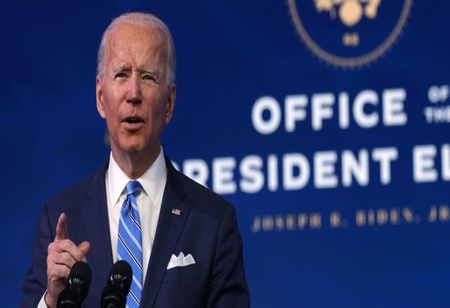
Biden's $1.9 Trillion US Stimulus Plan Impacts Asia Shares


Asian shares edges high records on Friday post the U.S President-elect Joe Biden has proposed a $1.9 trillion stimulus plan to kick-start the world's largest economy and trigger its response to COVID-19.
During prime-time remarks, Biden outlined a proposal that includes $415 billion aimed at the COVID-19 response, some $1 trillion in direct relief to households, and roughly $440 billion for small businesses and communities hard hit by the pandemic.
Biden's statements came after Federal Reserve Chair Jerome Powell struck a dovish tone in comments at a virtual symposium with Princeton University.
Global stocks had initially firmed on Thursday on a report that the stimulus package could be as big as $2 trillion, much more than markets were expecting.
Powell said the U.S. central bank is not raising interest rates anytime soon and rejected suggestions the Fed might start reducing its bond purchases in the near term.
Michael Frazis, portfolio manager at Frazis Capital Partners in Sydney states, "It's pretty clear that there's going to be significant stimulus. The vaccines are being rolled out, so you're going to significant stimulus in a kind of recovery scenario. That is very bullish for risk assets, particularly as it's unlikely that interest rates will be rising anytime soon."
MSCI's broadest index of Asia-Pacific shares outside Japan was up 0.1 Per around midday in Asia, just off a record high. Hong Kong's Hang Seng added 0.32 percent, while Australia's ASX 200 rose 0.17 percent.
Japan's Nikkei was down 0.21 percent after touching three-decade highs in the previous session, Chinese blue-chips lost nearly 1percent amid worries over rising COVID-19 cases in the country.
More than 28 million people are under lockdown in China. On Friday it reported the highest number of new COVID-19 cases in more than 10 months.
The gains in Asia followed a late dip on Wall Street on Thursday. While U.S. stocks spent most of the trading session in positive territory, helped by the stimulus hopes, concerns over the cost of the package led to a modest decline toward the end of Wall Street trade.